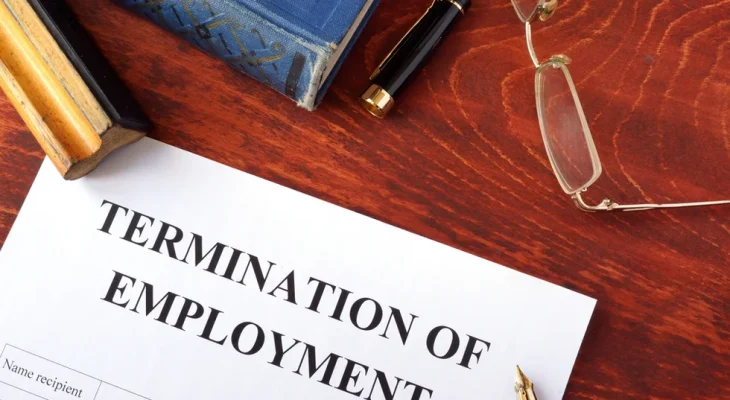
Understanding the Statute of Limitations for Wrongful Termination Claims in D.C.
If you believe you were wrongfully terminated in Washington, D.C., it’s natural to want to take immediate action. But one critical aspect you must understand is the statute of limitations—the legal deadline for filing your claim. Missing this deadline can bar you from pursuing your case altogether.
Knowing how much time you have to file a wrongful termination claim is essential to protecting your rights. This post breaks down the statute of limitations for various types of wrongful termination claims in D.C. and offers guidance on what steps to take next.
What Is a Statute of Limitations?
A statute of limitations is a law that sets the maximum time period within which a legal claim can be filed. Once this period expires, courts will generally refuse to hear your case, regardless of its merits.
For wrongful termination claims, the statute of limitations varies depending on the legal basis of your claim—such as discrimination, breach of contract, or retaliation.
Types of Wrongful Termination Claims and Their Deadlines in D.C.
Wrongful termination claims may arise under different laws, each with its own filing deadlines.
1. Discrimination and Retaliation Claims
Most wrongful termination cases involve alleged discrimination or retaliation. These claims are often filed under:
- The D.C. Human Rights Act (DCHRA)
- Federal laws such as Title VII of the Civil Rights Act, the Americans with Disabilities Act (ADA), and the Age Discrimination in Employment Act (ADEA)
Statute of Limitations:
- In D.C., you generally have 1 year from the date of termination to file a complaint with the District of Columbia Office of Human Rights (OHR).
- For federal claims, you must file a charge with the Equal Employment Opportunity Commission (EEOC) within 180 days of the termination (or 300 days if a state agency enforces a similar law, as is the case with D.C.).
Filing with the EEOC is typically required before you can bring a lawsuit in federal court.
2. Breach of Contract Claims
If your employment was governed by a written contract specifying terms of termination, and your firing violated that contract, you might have a breach of contract claim.
Statute of Limitations:
- Under D.C. law, breach of contract claims generally must be filed within 3 years from the date of the breach (in this case, your termination).
3. Claims Under the Family and Medical Leave Act (FMLA)
If you were fired in violation of your right to take medical or family leave, you may have a claim under FMLA.
Statute of Limitations:
- Claims must be filed in court within 2 years of the alleged violation, or 3 years if the violation was willful.
Why Filing Deadlines Matter
Statutes of limitations are strictly enforced by courts. Even if your wrongful termination claim has merit, missing the deadline can prevent you from seeking compensation or reinstatement.
Additionally, filing early allows government agencies to investigate while evidence and memories are fresh, improving your chances of a favorable outcome.
What Should You Do After Being Wrongfully Terminated?
To protect your rights and meet filing deadlines, consider the following:
1. Act Quickly
As soon as you suspect wrongful termination, begin gathering evidence. Save emails, performance reviews, termination notices, and document conversations related to your firing.
2. File Administrative Complaints
If your claim involves discrimination or retaliation, promptly file complaints with the appropriate agencies:
- D.C. Office of Human Rights (OHR)
- Equal Employment Opportunity Commission (EEOC)
These agencies often require initial filing before you can pursue court action.
3. Consult an Attorney
An experienced wrongful termination lawyer can:
- Help identify the correct legal basis for your claim
- Ensure you file within applicable deadlines
- Assist in gathering evidence and building your case
- Represent you in negotiations or litigation
How the Statute of Limitations Interacts with Settlement Negotiations
Sometimes, you and your employer may engage in settlement talks or mediation. While these discussions can be beneficial, they do not pause or extend the statute of limitations unless you have a written agreement stating otherwise.
Failing to file a timely claim just because you are negotiating can jeopardize your rights.
Special Considerations for Federal Employees and Government Workers in D.C.
If you work for the federal government or D.C. government, special rules apply to wrongful termination claims. These may involve different agencies, shorter deadlines, or alternative dispute resolution procedures.
Consulting a lawyer familiar with government employment law is especially important in these cases.
Final Thoughts
The statute of limitations for wrongful termination claims in Washington, D.C. can vary based on the type of claim and the governing law. Acting swiftly and understanding the deadlines is essential to preserving your legal rights.
If you’ve been wrongfully terminated, don’t delay seeking advice. The clock starts ticking from the moment your employment ends, and missing the deadline could cost you the chance to hold your employer accountable. We recommend wrongful termination attorney dc.











